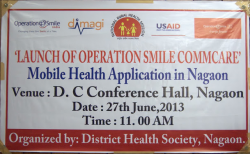 The Bundled Payments for Care Improvements (BPCI) initiative of the Centers for Medicare and Medicaid (CMS) seeks to improve the quality of care – the outcome – while limiting the cost of the services provided for a particular episode of care for specific patients.
The Bundled Payments for Care Improvements (BPCI) initiative of the Centers for Medicare and Medicaid (CMS) seeks to improve the quality of care – the outcome – while limiting the cost of the services provided for a particular episode of care for specific patients.
 The Bundled Payments for Care Improvements (BPCI) initiative of the Centers for Medicare and Medicaid (CMS) seeks to improve the quality of care – the outcome – while limiting the cost of the services provided for a particular episode of care for specific patients. The approach is not unlike that taken by CMS in the mid-1980’s with the implementation of the Inpatient Prospective Payment System (IPPS) based on particular discharge Diagnosis Related Groups (DRGs). That saw the change from a “time and materials” type of reimbursement for inpatient care to hospitals, to a “flat fee” basis for a particular discharge diagnosis. This caused the change of various hospital departments, like radiology, physical therapy, rehabilitation and occupational therapy, lab, etc., from being “revenue centers” to being designated as “cost centers”. Hospitals were no longer reimbursed based on the amount of services provided to inpatients, but strictly on the discharge diagnosis. The DRG-based IPPS reimbursement program only applied to inpatient reimbursements to hospitals. The reimbursement to physician providers and for hospital outpatient services were still based on the volume of services provided.
The Bundled Payments for Care Improvements (BPCI) initiative of the Centers for Medicare and Medicaid (CMS) seeks to improve the quality of care – the outcome – while limiting the cost of the services provided for a particular episode of care for specific patients. The approach is not unlike that taken by CMS in the mid-1980’s with the implementation of the Inpatient Prospective Payment System (IPPS) based on particular discharge Diagnosis Related Groups (DRGs). That saw the change from a “time and materials” type of reimbursement for inpatient care to hospitals, to a “flat fee” basis for a particular discharge diagnosis. This caused the change of various hospital departments, like radiology, physical therapy, rehabilitation and occupational therapy, lab, etc., from being “revenue centers” to being designated as “cost centers”. Hospitals were no longer reimbursed based on the amount of services provided to inpatients, but strictly on the discharge diagnosis. The DRG-based IPPS reimbursement program only applied to inpatient reimbursements to hospitals. The reimbursement to physician providers and for hospital outpatient services were still based on the volume of services provided.
The bundled payment program is an attempt to expand the DRG reimbursement concept and extend it to a whole “episode of care” as opposed to a particular “length of stay” as a hospital inpatient. As structured by the CMS, the bundled payment program has four different models for implementation. ![]()
Bundled Payment Models
There are four different bundled payment models for hospitals, providers and post acute care facilities to choose from.
Model 1: Retrospective Acute Care Hospital Stay Only – Under this model the “episode of care” is equal to the “length of stay” in the hospital. The hospital gets paid a discounted fee, and can share any gain that the reimbursement represents with involved physicians if they so choose. Physicians and post-acute care facilities will be paid separately.
Model 2: Retrospective Acute Care Hospital Stay plus Post-Acute Care – Under model 2 the “episode of care” includes all the services provided to the patient during the inpatient “length of stay” plus those services provided during a 30, 60, or 90 day period following discharge. For patients from up to 48 different clinical condition episodes this would include the costs for the inpatient stay and outpatient, including post-acute facility, care.
Model 3: Retrospective Post-Acute Care Only – This model applies only to post-acute care facilities such as a participating skilled nursing facility, inpatient rehabilitation facility, long-term care hospital or home health agency. The episode of care must begin within 30 days of discharge from the hospital and continue for at least 30, 60 or 90 days after initiation of the episode.
Model 4: Prospective Acute Care Hospital Stay Only – This is the only prospective payment program and is the only model that specifically includes physician providers. Under this model CMS would make one payment to the hospital at the outset of the episode of care which would cover all the services provided by the hospital, physicians and other providers, during that “episode of care”. The episode of care would include the length of stay in the hospital only, but also any readmissions that might occur within 30 days of discharge. With this model the physicians and other providers would submit a “no pay” claim to CMS. They would be paid out of the amount that CMS pays the hospital.
In Summary
Models 1 and 4 are the only models that specifically relate to physicians and other practitioner providers. Under model 1 the physicians continue to bill separately and are paid under the CMS’s Physician Fee Schedule. Under model 4 physicians and other practitioner providers file a “no pay” claim and instead share in the payment that CMS makes to the hospital. When making a decision regarding participation in a bundled payment program we at Healthcare information Services (HIS) recommend that physician providers carefully assess their relation with the hospital and weigh out the pros and cons of such participation. Any such participation needs to be carefully reviewed and specifically documented.







